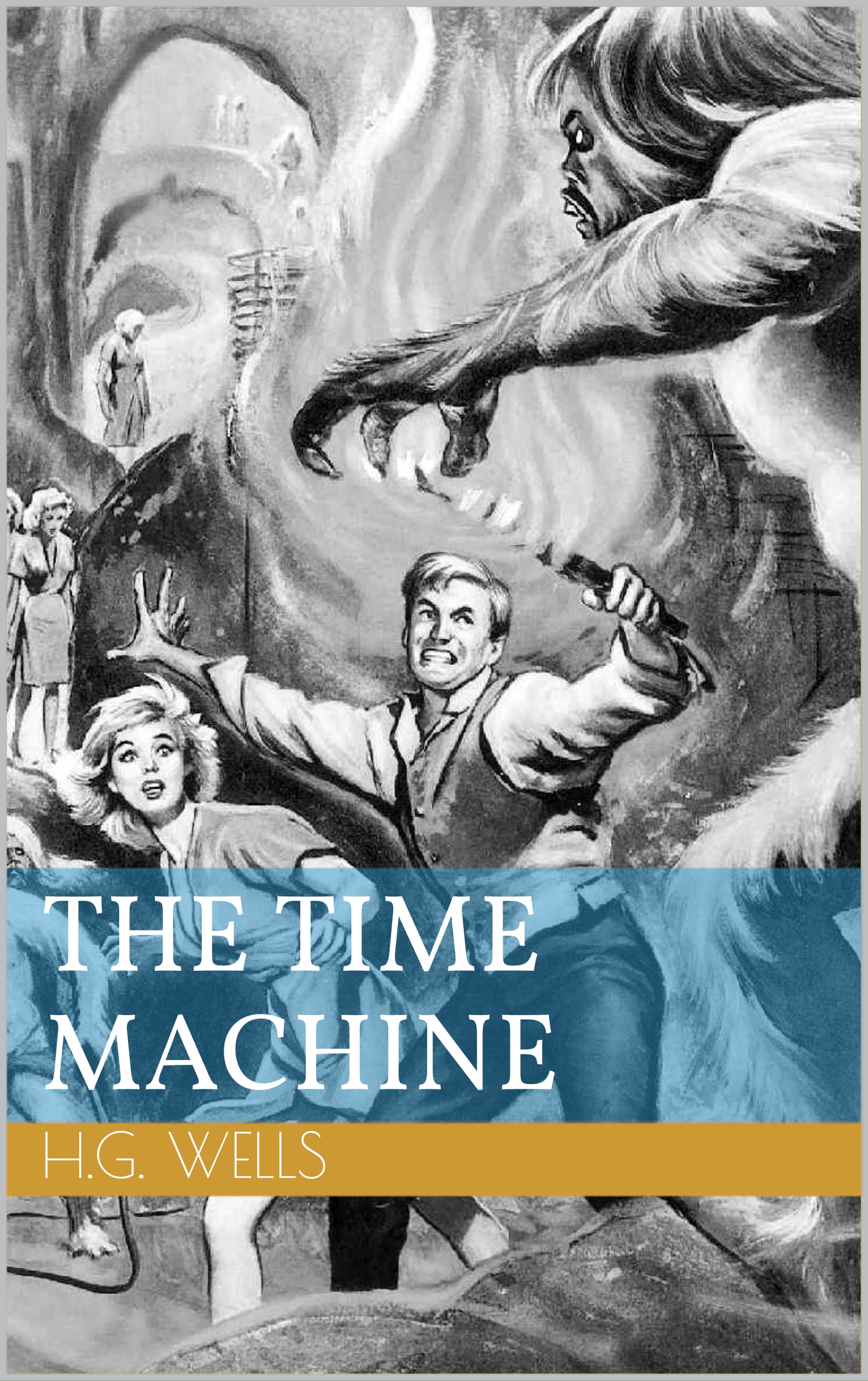
The Time Machine is a science fiction novel by H. G. Wells, published in 1895. Wells is generally credited with the popularization of the concept of time travel by using a vehicle that allows an operator to travel purposely and selectively forwards or backwards in time. The term time machine, coined by Wells, is now almost universally used to refer to such a vehicle. The Time Machine has since been adapted into three feature films of the same name, as well as two television versions, and a large number of comic book adaptations. It has also indirectly inspired many more works of fiction in many media.
Genre: FICTION / ClassicsThe Time Traveller (for so it will be convenient to speak of him) was expounding a recondite matter to us. His grey eyes shone and twinkled, and his usually pale face was flushed and animated. The fire burned brightly, and the soft radiance of the incandescent lights in the lilies of silver caught the bubbles that flashed and passed in our glasses. Our chairs, being his patents, embraced and caressed us rather than submitted to be sat upon, and there was that luxurious after-dinner atmosphere when thought roams gracefully free of the trammels of precision. And he put it to us in this way—marking the points with a lean forefinger—as we sat and lazily admired his earnestness over this new paradox (as we thought it) and his fecundity.
‘You must follow me carefully. I shall have to controvert one or two ideas that are almost universally accepted. The geometry, for instance, they taught you at school is founded on a misconception.’
‘Is not that rather a large thing to expect us to begin upon?’ said Filby, an argumentative person with red hair.
‘I do not mean to ask you to accept anything without reasonable ground for it. You will soon admit as much as I need from you. You know of course that a mathematical line, a line of thickness nil, has no real existence. They taught you that? Neither has a mathematical plane. These things are mere abstractions.’
‘That is all right,’ said the Psychologist.
‘Nor, having only length, breadth, and thickness, can a cube have a real existence.’
‘There I object,’ said Filby. ‘Of course a solid body may exist. All real things—’
‘So most people think. But wait a moment. Can an instantaneous cube exist?’
‘Don’t follow you,’ said Filby.
| Language | Status |
|---|---|
|
Italian
|
Already translated.
Translated by Daniela Di Lisio
|
|
Portuguese
|
Already translated.
Translated by Tiago Kern
|
|
Spanish
|
Already translated.
Translated by María del Carmen Sánchez González
|